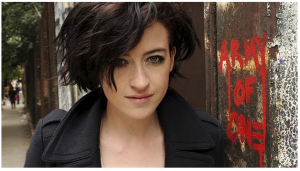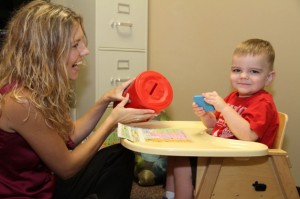A multi-platinum singer, two-time ARIA Award winner, and guest judge on The Voice, do you know Megan Washington? As one of Australia’s most famous singer/songwriters, “Washington” as she’s called, is setting stages on fire all across the world. But, did you know that Megan Washington has suffered from a debilitating stutter since she was five years old? If you have not seen her TEDx presentation, you may have never heard Megan Washington stutter, nor guessed that public speaking was her greatest fear. Her experience, as with many, was that singing therapy for stuttering brought “sweet relief” from her speech impediment. It was the only time she felt her speech was fluent. Washington’s story recently became headline news as she revealed her long-time secret at a TEDx conference in Sydney earlier this year.
“To me, language and music are inextricably linked through one thing. And that thing is I have a stutter.”









